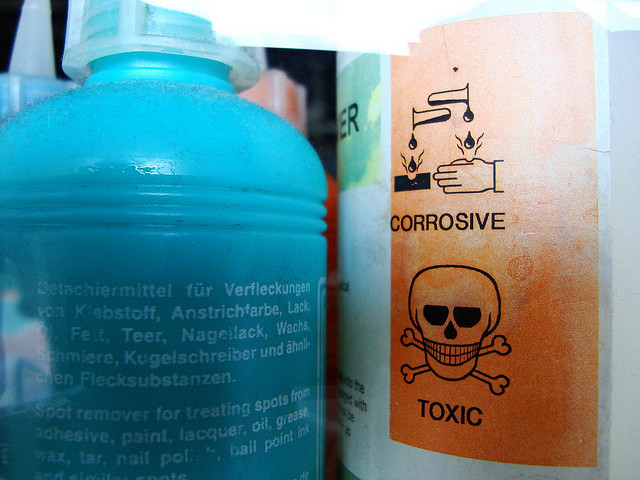New anti-spam regulations that go into effect July 1 will do more than prevent spamming within Canada by Canadian businesses. Canada’s Anti-Spam Law (CASL) is a catch-all net that covers all forms of electronic messaging, from email and newsletters to social media and software downloads. Businesses that don’t comply face fines of up to $10 million.
Audit, Compliance and Risk Blog
New Anti-Spam Laws Affect Virtually Every Business in Canada
Posted by Nelson Bennett on Wed, Jun 11, 2014
Tags: Corporate Governance, Business & Legal, International, Internet, Canadian
On June 2, the U.S. Environmental Protection Agency (EPA) proposed a new Clean Power Plan, in which the agency will apply its authority under the Clean Air Act (CAA) to dramatically reduce greenhouse gas (GHG) emissions from fossil fuel-fired electric generating units (EGUs). EPA calculates that these power plants account for roughly one-third of all domestic GHG emissions in the US. Advocates on opposite sides of this controversial proposal claim this Plan would either become the most important US initiative to address climate change, and/or would crash economies through much of the US heartland by strangling coal-fired electricity production. Let’s hope we end up closer to the optimistic scenario!
Tags: Corporate Governance, Business & Legal, Health & Safety, Environmental risks, Environmental, EPA, Greenhouse Gas, ghg
It's nearly time to start worrying that outdoor work in the summer sun will lead to heat illness. The federal Occupational Safety and Health Administration (OSHA) provides some guidance to employers and their workers, while the Sun Belt California's Division of Occupational Safety and Health (Cal/OSHA) administers detailed regulatory requirements promulgated under state law. If you have outdoor workers in California you must comply with the following requirements, while if you're anywhere else you should at least consider them.
Tags: Corporate Governance, Business & Legal, Employer Best Practices, OSHA, Employee Rights, California Legislation, Environmental risks, Environmental, EHS, EPA
Vehicle Maintenance: Mobile Apps Making Life Easier
Posted by STP Editorial Team on Mon, May 26, 2014
Mobile technology is changing our lives, including how we drive and maintain our vehicles, where we get gas and how much we pay for it, to which route we take to work every day. There are apps to record your service history and even ones designed to help you complete simple car fixes on your own. Below are examples of some useful vehicle maintenance and repair apps for businesses and individuals.
Tags: Business & Legal, Employer Best Practices, Health & Safety, Training, Transportation
Corporate directors and chief executive officers (CEOs) benefit from variety of legal rights, set forth in state corporation codes, company articles of incorporation and bylaws, and in their individual employment contracts. In addition, they may be able to access additional “equitable rights” to fair dealing, based on common law principals. But as a dethroned CEO just learned from the Delaware Supreme Court, these equitable rights can be limited by the equitable rights of other parties.
Tags: Corporate Governance, Business & Legal, SEC
Mold Damage Insurance Claim: When It Doesn’t All Come Out in the Wash
Posted by Barry Zalma on Wed, May 14, 2014
In February 2014, the U.S. Supreme Court declined to take up a closely-watched legal battle concerning claims against manufacturers and retailers of front-loading washing machines accused of causing mold infestations.
Tags: Business & Legal, Insurance, Insurance Claims, mold
OSHA 29 CFR 1910.1200: A MUST for Employers That Use Hazardous Chemicals
Posted by STP Editorial Team on Mon, May 12, 2014
Employers that have hazardous chemicals in their workplaces are required by OSHA’s Hazard Communication Standard (HCS), 29 CFR 1910.1200, to implement a hazard communication program. The program must include labels on containers of hazardous chemicals, safety data sheets (SDSs) for hazardous chemicals, and training for workers, and the employer must describe in a written program how it will meet the requirements of the HCS in each of these areas. Employers can implement an effective hazard communication program by following these six steps: learn the standard and identify responsible staff; prepare and implement a written hazard communication program; ensure containers are labeled; maintain Safety Data Sheets (SDSs); inform and train employees; and evaluate and reassess your program.
Tags: Business & Legal, Employer Best Practices, Health & Safety, Environmental risks, Environmental, EHS, Hazcom
Supreme Court Reinstates EPA Interstate Regulation of Upwind Air Emissions
Posted by Jon Elliott on Wed, May 07, 2014
On April 29 the US Supreme Court reversed a lower court decision, reinstating US Environmental Protection Agency (EPA) rules requiring states to control emissions of air pollutants that contaminate downwind states (EPA v. EME Homer City Generation, LP). The Cross-State Air Pollution Rule (CASPR, or the “Transport Rule”) implements “Good Neighbor” provisions in the Clean Air Act (CAA) designed to ensure that upwind states’ emissions don’t prevent a downwind state from meeting air quality standards. This ruling frees EPA to implement rules requiring tighter emission controls on pollutant sources in upwind states.
Tags: Business & Legal, Health & Safety, Environmental risks, Environmental, EHS, climate change, Transportation
EU Parliament To Require Corporate Social Responsibility and Diversity Reporting
Posted by Jon Elliott on Mon, May 05, 2014
On April 15, the European Parliament adopted a proposal to expand public company requirements to report accounting information, adding social responsibility and diversity reporting for companies that meet specified employee and revenue thresholds. The new directive provides targeted companies with flexibility to meet these rules by meeting national or voluntary standards that require at least equivalent reporting. To become law, the Commission's proposal must also be adopted by the European Union (EU) Member States in the Council (which votes by qualified majority); this is anticipated within the coming weeks.
Tags: Corporate Governance, Business & Legal, Employer Best Practices, International, Environmental risks, Environmental, EHS
News from The Bureau of Safety and Environmental Enforcement (BSEE) Press Release Issued April 3, 2014
Tags: Corporate Governance, Business & Legal, SEC, OSHA, Environmental risks, Environmental, EHS, Oil & Gas, climate change










